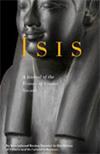A “Truly International” Discipline: Adverbs, Ideals, and the Reinvention of International Mathematics, 1920–1950
IF 0.9
2区 哲学
Q2 HISTORY & PHILOSOPHY OF SCIENCE
引用次数: 0
Abstract
Examining how, and to what effect, the phrase “truly international” became central to the rhetoric and organization of the American-hosted 1950 International Congress of Mathematicians, this essay traces the negotiation of a “truly international” discipline from mathematicians’ first international congresses around the turn of the century across two world wars and their divisive interlude. Two failed attempts to host international congresses of mathematicians in the United States, for 1924 and 1940, defined the stakes for those who became the principal organizers for 1950. Combining American organizational records with contexts and sources that extend across and beyond traditional mathematical centers in Europe and North America, the essay shows how a small cohort of American mathematicians marshaled an emphatic but ambiguous “international” rhetoric to guide policies and command cooperation and support while responding to persistent challenges. Their adaptations and compromises left a lasting mark on the terms and achievements of international inclusion, cooperation, and hegemony in mathematics.一门 "真正国际化 "的学科:副词、理想和国际数学的重塑,1920-1950 年
这篇文章探讨了 "真正的国际 "这一短语是如何成为美国主办的 1950 年国际数学家大会的核心言辞和组织工作的,并探讨了其影响。这篇文章追溯了 "真正的国际 "学科的谈判过程,从数学家在世纪之交举行的首次国际大会开始,跨越了两次世界大战及其分裂的间歇期。1924 年和 1940 年在美国举办国际数学家大会的两次失败尝试,决定了 1950 年主要组织者的利害关系。这篇文章将美国的组织记录与欧洲和北美传统数学中心内外的背景和资料来源相结合,展示了一小部分美国数学家是如何运用一种强调但模糊的 "国际 "言辞来指导政策、赢得合作与支持,同时应对持续不断的挑战的。他们的调整和妥协在数学的国际包容、合作和霸权的条件和成就上留下了持久的印记。
本文章由计算机程序翻译,如有差异,请以英文原文为准。
求助全文
约1分钟内获得全文
求助全文
来源期刊

Isis
管理科学-科学史与科学哲学
CiteScore
1.00
自引率
16.70%
发文量
150
审稿时长
>12 weeks
期刊介绍:
Since its inception in 1912, Isis has featured scholarly articles, research notes, and commentary on the history of science, medicine, and technology and their cultural influences. Review essays and book reviews on new contributions to the discipline are also included. An official publication of the History of Science Society, Isis is the oldest English-language journal in the field.
The Press, along with the journal’s editorial office in Starkville, MS, would like to acknowledge the following supporters: Mississippi State University, its College of Arts and Sciences and History Department, and the Consortium for the History of Science, Technology, and Medicine.
 求助内容:
求助内容: 应助结果提醒方式:
应助结果提醒方式:


